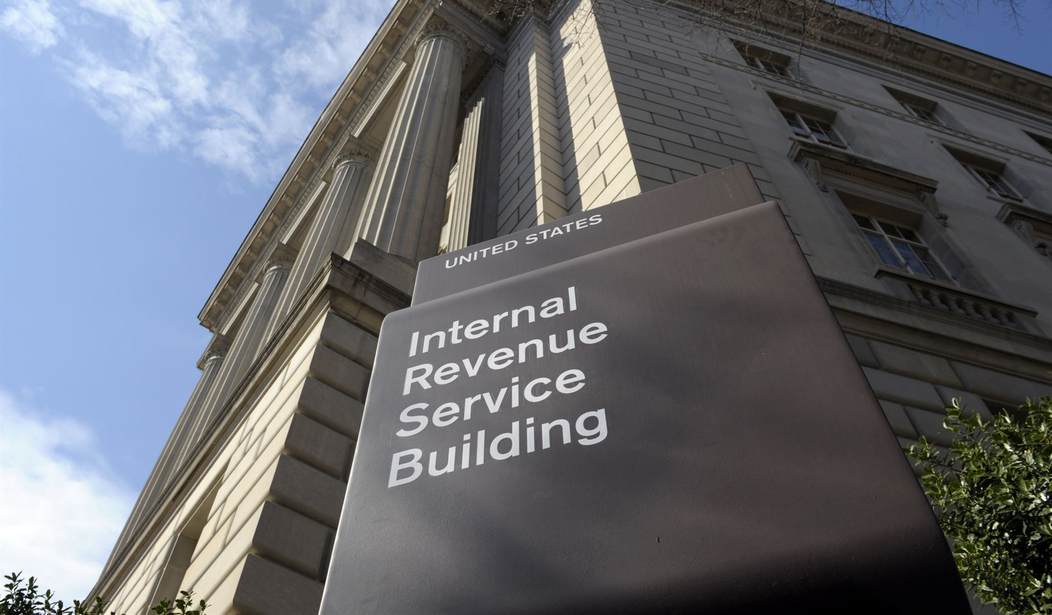No problem. I can’t think of a single reason why the Internal Revenue Service scanning my face before allowing me to access my tax records is a bad idea. Not at all. It’s not like we can’t trust the IRS, right?
Wait—
If you created an online account to manage your tax records with the IRS, your login credential will no longer work later this year. Instead, as first reported by Krebs on Security, the IRS will force users to sign in to the IRS website through an account with third-party firm ID.me, and provide a government identification document with their photo alongside a “selfie” to verify their identity, according to the IRS website.
As if the government needed to collect more data on us https://t.co/NkSYUsDPWy
— Daily Caller (@DailyCaller) January 21, 2022
Then again…
But remember, requiring photo ID for voting is racist! https://t.co/DhjgIvyui2
— Cicero (@mthjwbgs) January 21, 2022
Got hypocrisy, anyone?
Anyway, according to the ID.me website, the company “provides identity proofing, authentication and group affiliation verification for organizations across sectors.” And more:
The company’s technology meets the highest federal standards and is approved as a NIST 800-63-3 IAL2 / AAL2 conformant credential service provider by the Kantara Initiative.
(The Kantera Initiative, according to its website, is a “unique global ‘commons’ that operates conformity assessment [and] assurance.”)
ID.me is the only provider with video chat and in-person verification, increasing access and equity. The team is committed to “No Identity Left Behind” to enable all people to have a secure digital identity.
As noted by Krebs, the service requires applicants to supply substantially more information than typically requested for online verification, such as scans of their driver’s license or other government-issued ID, copies of utility or insurance bills, and details about their mobile phone service.
The IRS first announced its partnership with ID.me in November, as reported by Daily Caller News Found, saying the new arrangement would “improve accessibility” and security. IRS Commissioner Chuck Rettig said at the time “the IRS has been working hard” in this area — exactly what scares more than a few of us:
Identity verification is critical to protect taxpayers and their information. The IRS has been working hard to make improvements in this area, and this new verification process is designed to make IRS online applications as secure as possible for people.
So, here’s the thing, right out of the chute. I’m less concerned with ID.me’s ability to verify that I am me — or that anyone is who he or she professes to be — and more concerned with what the IRS might at any time do with that verification and personal information gathered.
Call me paranoid, but a quick scan of the below RedState reports illustrates why I — and untold millions of other Americans — might be a tad bit “suspicious” of the Internal Revenue Service.
IRS Denies Christian Organization Tax-Exempt Status; Their Justification Is Preposterous
GOOD! IRS Commissioner Who Allowed the Targeting of Conservative Groups is GONE!
And of course, there was that “little thing” about Lois Lerner, then-director of the IRS Exempt Organizations Unit, and the 2013 IRS targeting of politically-aligned groups, either denying them tax-exempt status outright or delaying the status until they could no longer take an effective role in the 2012 election.
Again, what could possibly go wrong with the IRS soon being able to gain even more personal information — right upfront — about all of us?
Anything and everything.
More on RedState:
BREAKING: Federal Judge Plunges Rusty Dagger Into Biden’s Vax Mandate Agenda
Donald Trump and Ron DeSantis Blow up ‘Trump vs. DeSantis’
WATCH: Pelosi Goes Full-Metal Stand-up Comic With Delusional Description of House Democrats














Join the conversation as a VIP Member